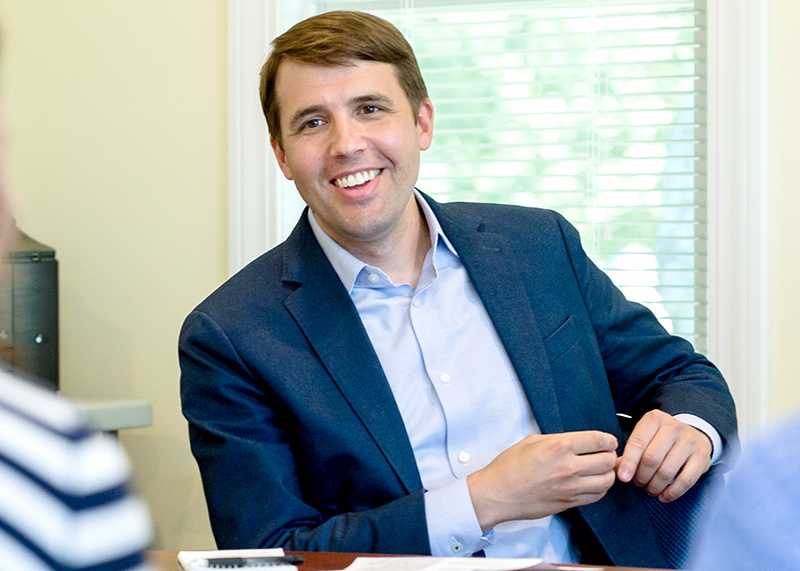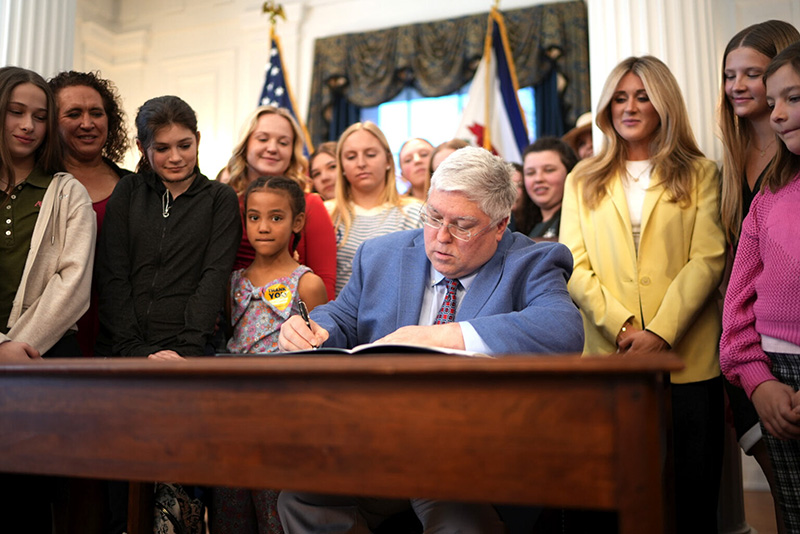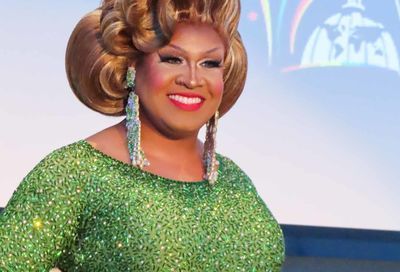Meet the gay men risking a Trump presidency to vote third-party
“The only people responsible for electing Donald Trump, are the people that vote for Donald Trump."

“I’ll be honest with you, I’m undecided between Jill Stein and Gary Johnson,” says Joe Dodd, a 25-year-old gay crematory operator from Orlando, Fla. “In my heart, I know that neither one of them stands a chance of winning this election. But at the same time, I want my vote to go for someone that I truly do believe in.”
Dodd was a strong supporter of Bernie Sanders. After the Vermont senator lost the primary to Hillary Clinton, he considered voting for the former Secretary of State. But after a hack of the Democratic National Committee’s email server showed that staffers at the DNC had tried to influence the primary on behalf of Clinton, Dodd cut ties with the party and vowed not to vote for the Democratic nominee.
“This is the first time I’ve actually felt like this during an election, where I don’t feel I can trust either the Democratic or Republican candidate,” says Dodd. “And I’m registered no party affiliation, but I’ve always tended to lean Democratic. It just sucks to feel like I can’t trust the Democratic Party anymore.”
As for Libertarian or Green, Dodd hasn’t made up his mind. On the one hand, as an LGBT voter, he finds Johnson’s “live-and-let-live” stance on social issues appealing. On the other hand, when it comes to fiscal issues, Stein’s platform is ideologically similar to the platform Sanders campaigned on during the primary.
“Come November, I might be more likely to vote for Stein,” he says. “I honestly believe her platform is a lot closer to Bernie’s. As far as government goes, she has a more progressive stance on the issues.”
Dodd’s decision not to support Clinton has earned him a lot of flak from some of his friends, particularly on social media. His left-leaning friends argue that by not voting for Clinton, he is enabling Republican nominee Donald Trump’s rise to the presidency. But Dodd can’t bring himself to support Clinton — or any Democratic candidates he thinks helped to marginalize Sanders.
“Florida is a swing state, but at the end of the day, I have to be happy with who it is I’m going to support,” he says. “I want what is best for the American people, but I’m not going to back a party that is not fair, not honest. And they’ve proven themselves to be unfair and dishonest. How do I know they’re not going to cheat the American people?”
Dodd is not alone. Public polling throughout the election cycle has consistently shown both Trump and Clinton to be highly unpopular. Both Johnson and Stein have tried to appeal to disaffected Republicans and Democrats, particularly younger voters, like Dodd, who favored Sanders in the Democratic primary. This has made Democrats nervous about 18-to-34-year-old voters, who polls show are only narrowly voting for Clinton over Johnson. As a result, Clinton recently dispatched Sanders to criticize Johnson’s stances on environmental and financial regulation, free college and climate change during an appearance on CNN.
“If any of the people who voted for me take a hard look at what [Johnson] stands for, I think — and understand where he’s coming from — they will not be supporting him,” Sanders said. His pleas not to vote for a third-party candidate may be falling on deaf ears when it comes to some of his former supporters. While Andrew Jones, a gay 44-year-old retail worker from Knoxville, Tenn., won’t be supporting Johnson, he is going to cast his vote for the Green Party. Jones is disgusted with the Democratic Party, and says it would need to “clean house” of its current leadership just to get him to listen to its candidates.
“The second Hillary won the nomination, I switched my registration to independent,” he says. “I don’t think people find the Democratic Party to be liberal. They give some liberal positions on limited social issues. But on the economy, the environment, they don’t do anything. On immigration, on war, they’re just as bad. Worse even. They’ll say anything they can to get elected, and then they’re going to work for their donors.”
As for the possibility that his vote could swing the election to Trump? “I don’t care,” Jones says. “I don’t think Trump’s worse than Hillary. I think Hillary is the most despised political figure right now, even more than Trump.” A Trump presidency would be “shitty,” Jones admits, but he adds that Democrats could always regain power by waiting for the political pendulum to swing back in their direction.
“That’s the way politics works. It swings back and forth. It could be just a waiting game,” he says. “There’s lots of grassroots movements to get local candidates to be more liberal. But Hillary isn’t liberal. So it’s not like getting her at the top is going to do anything, either.”
Sasha Martinez, a gay 27-year-old who works in the entertainment industry in Los Angeles, says that the Libertarian Party’s socially liberal but fiscally responsible positions have always appealed to him, as has the party’s long-standing support for marriage equality and equal treatment of LGBT people under the law. Martinez also recognizes that the Libertarian Party is particularly benefitting from dissatisfied voters this cycle.
“I think it’s less Gary Johnson himself, but an urge for a third candidate,” says Martinez. “There’s a lot of Democrats who really don’t like Hillary. She’s a little more pro-Wall Street, a little more right than a lot of liberals would like. And then you have Donald Trump on the other side, which kind of speaks for itself. There are Republicans who are not happy with him, there are definitely moderates who are not happy with him, and you’re never going to get someone on the Left to support him.”
As a result, Martinez gave the Libertarian Party a second look, and found its principles appealed to him.
“You don’t have a large majority [of voters] that identify as libertarian, because, traditionally, it’s been a taboo word,” he says. “The only way the Libertarian Party can gain ground is to snatch up those moderate voters, and the defectors from the other parties. The night that Donald Trump got the Republican nomination, the Libertarian Party got an increase of 400 percent in people registering.”
Richard Sincere, a gay 57-year-old consultant from Charlottesville, Va., has always felt comfortable in the Libertarian Party, in part because of the party’s stance on LGBT rights.
“One reason I’m a libertarian is because the philosophy of individual liberty that is at the heart of the Libertarian movement is the most conducive to gay people,” he says. “Live and let live philosophy, get the government out of your bedroom. The Libertarian Party was the first political party to endorse marriage equality in its platform, and it was 40 years ago, way ahead of the Republicans and Democrats. So it’s just the natural home for the gay or lesbian voter.”
Sincere notes that the Libertarian Party is not supportive of legislation that would prohibit private businesses from discriminating against LGBT people, but reasons that it’s based on the principle of freedom of association and of taking advantage of the free market system to patronize a business that doesn’t discriminate.
“The government should not interfere in private business,” he says. “If people are stupid enough to discriminate, and lose business because of it, they should go ahead and do that.
“I think most people have not really thought about it thoroughly, and don’t understand what the implications are for their own lives,” he continues. “They just don’t see how government interference in their private business is the same as government interference in their private homes.”
The sentiment is echoed by Joseph Bryant, a gay 38-year old tax advisor and divorce mediator from Fishers, Ind., who considers himself a hard-line libertarian. A strong believer in constitutional, limited government and an opponent of social “safety net” programs, the Libertarian Party seemed like a natural fit for him.
“There’s no moral judgment in libertarianism,” he says. “You’re allowed to do anything you want, as long as you don’t infringe upon the liberties of other people. If you wanted to go have sex with 40 people, or prostitution was a thing, or drugs in clubs, or whatever extreme thing you wanted, libertarians don’t care. As long as you’re not hurting anyone else, you’re free to do whatever you want. And I think that’s something that’s very different from both major parties.”
Charles Worle, a bisexual 34-year-old Silver Spring resident, voted for Jill Stein in 2012. He plans to do so again because of his desire for change and Stein’s commitment to progressive values. His stance had earned him criticism from Facebook friends who repeatedly accuse him of helping to elect Trump, a charge he strongly refutes.
“I think people need to vote their conscience, and vote what it is they truly believe in,” he says. “The only people that are responsible for electing Donald Trump, are the people that vote for Donald Trump.”
Donald Trump thinks transgender people in the military is “ridiculous”
Support Metro Weekly’s Journalism
These are challenging times for news organizations. And yet it’s crucial we stay active and provide vital resources and information to both our local readers and the world. So won’t you please take a moment and consider supporting Metro Weekly with a membership? For as little as $5 a month, you can help ensure Metro Weekly magazine and MetroWeekly.com remain free, viable resources as we provide the best, most diverse, culturally-resonant LGBTQ coverage in both the D.C. region and around the world. Memberships come with exclusive perks and discounts, your own personal digital delivery of each week’s magazine (and an archive), access to our Member's Lounge when it launches this fall, and exclusive members-only items like Metro Weekly Membership Mugs and Tote Bags! Check out all our membership levels here and please join us today!

























You must be logged in to post a comment.